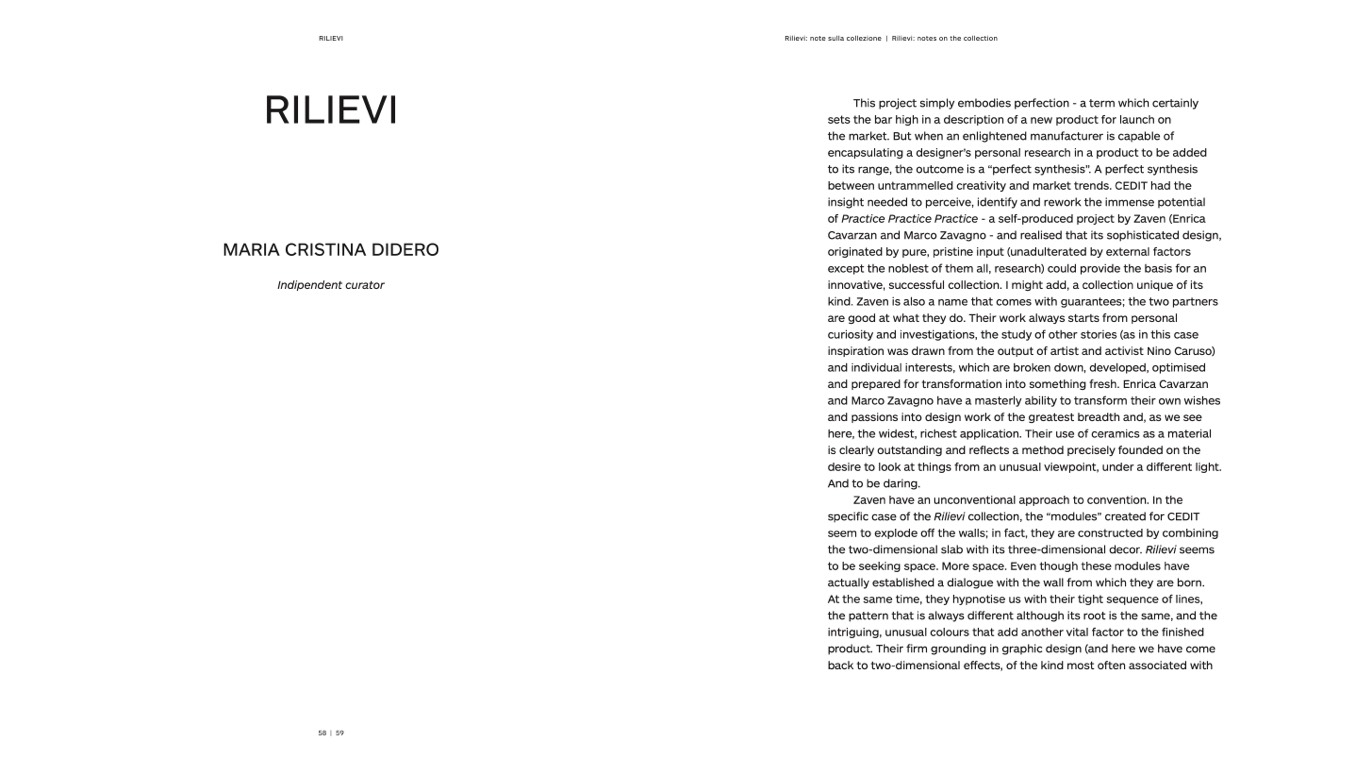
RILIEVI
Rilievi: note sulla collezione | Rilievi: notes on the collection
RILIEVI
MARIA CRISTINA DIDERO
Indipendent curator
This project simply embodies perfection - a term which certainly
sets the bar high in a description of a new product for launch on
the market. But when an enlightened manufacturer is capable of
encapsulating a designer’s personal research in a product to be added
to its range, the outcome is a “perfect synthesis”. A perfect synthesis
between untrammelled creativity and market trends. CEDIT had the
insight needed to perceive, identify and rework the immense potential
of Practice Practice Practice - a self-produced project by Zaven (Enrica
Cavarzan and Marco Zavagno - and realised that its sophisticated design,
originated by pure, pristine input (unadulterated by external factors
except the noblest of them all, research) could provide the basis for an
innovative, successful collection. I might add, a collection unique of its
kind. Zaven is also a name that comes with guarantees; the two partners
are good at what they do. Their work always starts from personal
curiosity and investigations, the study of other stories (as in this case
inspiration was drawn from the output of artist and activist Nino Caruso)
and individual interests, which are broken down, developed, optimised
and prepared for transformation into something fresh. Enrica Cavarzan
and Marco Zavagno have a masterly ability to transform their own wishes
and passions into design work of the greatest breadth and, as we see
here, the widest, richest application. Their use of ceramics as a material
is clearly outstanding and reflects a method precisely founded on the
desire to look at things from an unusual viewpoint, under a different light.
And to be daring.
Zaven have an unconventional approach to convention. In the
specific case of the Rilievi collection, the “modules” created for CEDIT
seem to explode off the walls; in fact, they are constructed by combining
the two-dimensional slab with its three-dimensional decor. Rilievi seems
to be seeking space. More space. Even though these modules have
actually established a dialogue with the wall from which they are born.
At the same time, they hypnotise us with their tight sequence of lines,
the pattern that is always different although its root is the same, and the
intriguing, unusual colours that add another vital factor to the finished
product. Their firm grounding in graphic design (and here we have come
back to two-dimensional effects, of the kind most often associated with
58 | 59

